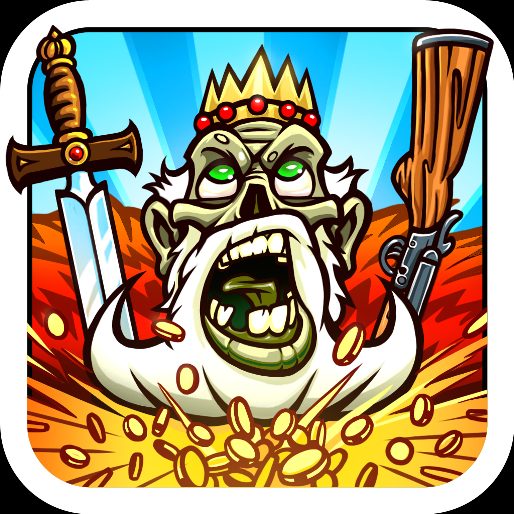Mobile Game of the Week: King Cashing 2 (iOS)

According to Quebec-based developer Productions Multimage, the idea for their original installment of King Cashing came from combining “slot machine” and “RPG” in Kairosoft’s game-studio sim Game Dev Story. Turns out the compulsion factor present in both genres multiplied when they were smashed together.
Naturally, the developers haven’t strayed far from the formula in their sequel. Mechanically, King Cashing 2 is quite similar to its predecessor: By matching reels in slot machine battles, you acquire gold, experience points and items that you can use to strengthen your characters. It’s a basic three-reel, three-line setup, with the first reel housing your fighters, the second your weapons and the third your enemies. Match a fighter or a weapon with an enemy and your attack succeeds. Line up a fighter, a weapon and an enemy for extra damage, or a critical hit if the weapon is the fighter’s preferred type.
Of course, there are plenty of “MISS” spaces interspersed in each reel. And since each spin costs three cherries to play, wearing down the enemy’s HP before your currency runs out builds tension. But because you can stop each reel individually, you have greater control of the results than you would in Vegas. This is, in part, why the King Cashing formula succeeds: Combined with between-battle upgrading, the games generally produce the feeling that skill and strategy are just as important as luck.
The more dramatic change is apparent in the radical shift in tone from the first game. Whereas the original was a straightforward knights-vs.-monsters affair, King Cashing 2 casts your king and his followers—including a “cyborgette,” a Rambo lookalike, and an animal handler—as, everyone take a drink, zombies. (I wasn’t aware our federal government’s Every Game Must Contain Zombies law had spread to Canada, but apparently Productions Multimage got the memo.) Still, the rudimentary story, presented as a series of comic book pages, is as endearing as the refreshed art style. The occasional Easter egg lets us know the developers are in on the joke. One gets the sense they suddenly realized, a year after the fact, how ridiculous their game concept was—and then just went for it.
